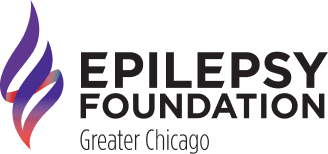Resources for Epilepsy Care

Epilepsy 101
What is epilepsy?
What is a seizure?
Talking with a therapist
Is surgery an option and how do I know if it’s right for me?
Is epilepsy contagious?
How is epilepsy treated?
Can I live a normal life while managing stress?
Can a person die from epilepsy?
How can my loved ones support me best?
How do I keep my child safe?
Awareness Materials
Arabic
English
Farsi
French
Hindi
Polish
Russian
Spanish
FAQs
Epilepsy Basics
What is a seizure?
A seizure is a brief discharge of electrical activity in the brain which can alter a person’s movement, sensation, awareness, behavior and/or speech. There are more than 20 types of seizures. Seizures last between seconds and minutes and usually end on their own. One in ten people will have a single seizure in their lifetime and that is not epilepsy.
What is epilepsy?
Epilepsy is a brain disorder marked by recurring unprovoked seizures. An initial diagnosis of epilepsy may be given after a person has more than two seizures. An EEG (electroencephalogram) is one of the best tools to diagnosis seizure activity in the brain and can also determine from where in the brain the seizures are originating.
Who treats epilepsy?
A neurologist is a doctor who specializes in the brain and the nervous system. An epileptologist is a neurologist who sub-specializes in epilepsy. There are additional sub-specialists in epilepsy who focus on surgery or syndromes. An initial diagnosis is often made by the primary care provider and a referral should be made for advanced specialized care. You can find a list of epilepsy specialists by state on the website of the National Association of Epilepsy Centers.
When is a seizure not epilepsy?
Febrile seizures. One in 25 from ages 6 months to 6 years will have at least one febrile seizure. These are seizures spiked by high fever and are often caused by another co-occurring illness.
Psychogenic non-epileptic seizures (PNES). The signs and behaviors of PNES often look like seizures but they do not show abnormal brain activity on the EEG. PNES is treated using cognitive behavioral therapy.
Treatment Options
What medication is best for me?
Anti-seizure medication is the first option in the treatment plan and 70% of people with epilepsy have good seizure control on medication. Your epilepsy specialist will prescribe the best medication for your seizures.
Is surgery right for me?
When it is known where the seizures originate and a person has failed 2 or more medications, epilepsy surgery is an option. There are many subcategories of epilepsy surgery and this treatment option can also be curative. Please ask your epilepsy specialist if you are a good fit for surgery.
Other Options (Adjuvant or complementary therapy)
Implant Devices. How does an implant device help control seizures? These FDA approved devices are used to send electrical signals to the brain to counter seizure activity. Some devices are implanted in the brain (Responsive Neurostimulation and Deep Brain Stimulation), while others use a different technique through the vagus nerve (vagus nerve stimulation) and is implanted in the chest. Ask your epilepsy specialist if an FDA approved implant device is a good fit for you.
Ketogenic diet. Regarding this type of complementary therapy, how long do we have to do the diet before we know it is working? About two months. Adjustments are made to the diet after one month, and we know by two months if it seems to be helpful.
Health & Safety Concerns
How do I keep my child safe?
First we recommend that your immediate family is trained in seizure first aid. Secondly, we recommend that all school personnel and staff at any other activity where your child participates is seizure first aid trained.
What are the three must-haves when a patient with epilepsy travels in order to stay safe and well?
We recommend you always have a copy of your seizure action plan, wear a medical ID bracelet, and carry a list of your current medications.
What is a seizure action plan (SAP)?
A Seizure Action Plan (sometimes referred to as a care plan, or rescue plan) itemizes seizure activity including triggers, signs and symptoms, medication taken and any important rescue medication protocol. Not all persons with epilepsy will have a rescue medication. All adults and children should have a plan, even if no rescue medication has been prescribed. Ask your medical care team to help you customize the best plan for you. Fill out a Seizure Action Plan here.
Can I live a normal life?
Most people can have a very good quality of life when they are diagnosed early and start a treatment plan right away. People with epilepsy can have successful careers and family life. It may take time to learn triggers, if any, and these are helpful warning signs that can prevent or minimize seizure activity. For some people, there may be driving restrictions, and your care team can help you decide what is best for you.
Can a person die from epilepsy?
1 in 1,000 people diagnosed with epilepsy can experience sudden unexpected death in epilepsy (SUDEP). While more research needs to be done to understand risk factors, it is important that all people with epilepsy adopt safety measures and use helpful life-saving devices in order to live a healthy, safe life either alone or with others.
